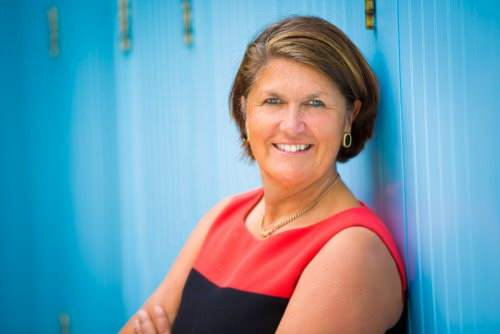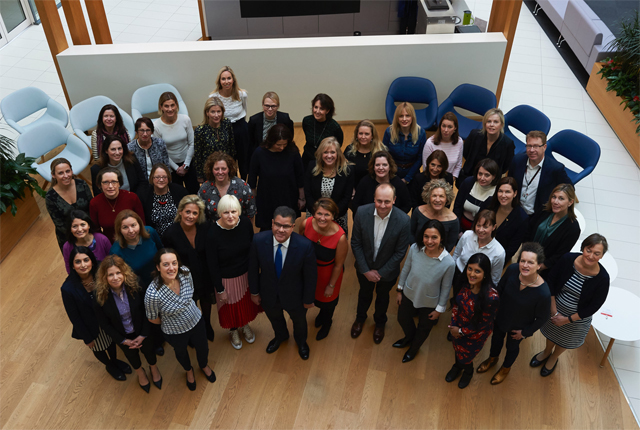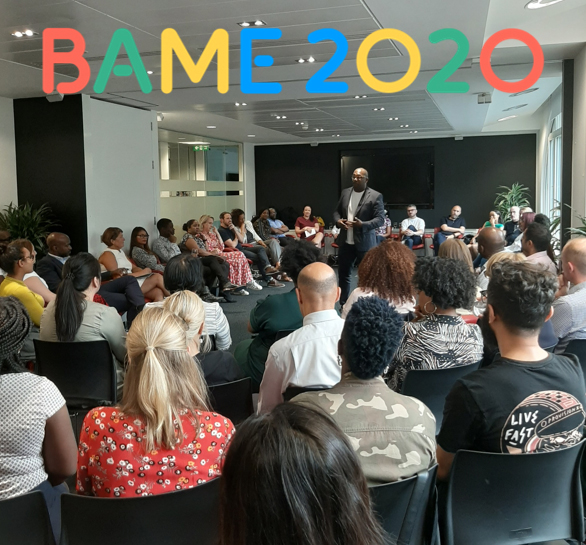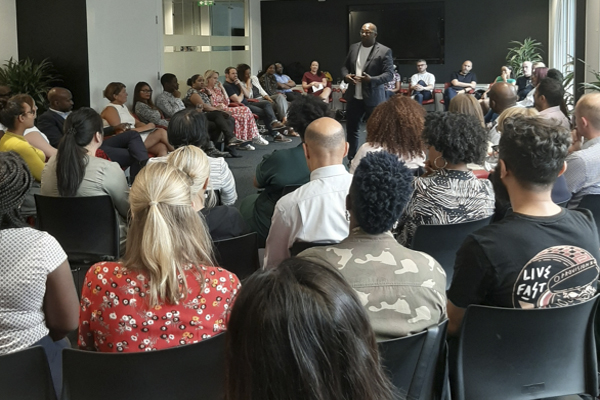Executive recruitment firm f1 Founder and CEO, Amanda Fone, is behind two movements helping to combat the dire lack of women and BAME leaders in the UK’s marketing, communications and advertising industry. The two non-commercial initiatives – Back2businessship and BAME2020 – are already boosting gender and race diversity in the sector, confirms Fone.
“Statistics suggest that 49% of the population in Outer London will be non-White by 2041. We need to employ far more people representing this group, and create the right messages that marketing and communications is a rewarding career with a baked in democratic attitude towards promoting all talent. Our industry is under pressure to be truly representative,” explains Fone.
Yet, according to the most recent research carried out by the Institute of Practitioners in Advertising (IPA), BAME representation in the sector’s C-suite is still only 5.5%. The statistics are slightly better for BAME representation in lower levels, hovering around 12-15%. Women now comprise 32.7% (in 2018) of the sector’s c-suite roles, only slightly up from 31.2% in 2017.
“Overall, these statistics are a long way off the 2020 targets set by the IPA for the sector, which is aiming for 40% of all senior posts to be held by women and 15% of people with BAME backgrounds. It’s also aiming to attract 25% of BAME new starters,” points out Fone.

RETURNER CHALLENGES
Both of these groups have their unique challenges and the industry has its work cut out to achieve those targets, says Fone: “In terms of returners, millions of pounds are lost every year when we lose women from the sector due to parental/childcare reasons. They may need to work more flexibly or take extended leave whilst their children are young, or to look after ageing/sick parents. Historically, this has fallen to women, but today more men are having to take extended time out of their careers too to share care responsibilities. Job shares/talent partnerships and more agile working is happening, but very slowly mainly because corporate structures are not keeping up with the way society is changing.”
Companies are now trying to get these people back through returner programmes. Fone set up the returner programme Back2businessship with Liz Nottingham, HR Director at R//GA, in 2014 for the marketing, PR and advertising sector, mainly targeting carers/parents who have taken over three years out of their careers.
“The initiative, financed and delivered by f1, comprises a six-day reorientation back to work bootcamp with over 25 modules and coaching sessions for approximately 32 delegates. A speed-interviewing event on the final day of the programme allows delegates to meet up to 30 different companies interested in hiring returners. The programme is free for delegates to attend and companies also pay nothing to attend and no introduction fee if they hire, so there are no barriers for hirers or attendees,” Fone explains. The next speed-interviewing event is scheduled to take place on Thursday 19th March 2020.
To date, 75% of returners who have been on the six-day bootcamp are successfully back into their careers, confirms Fone. “Applications for next year’s event is already open to all candidates (male/female) wanting to return to their careers, and this year we are particularly welcoming applicants from BAME backgrounds,” she adds. Click here for more information/apply.

RACE AT WORK
The challenge of attracting more BAME candidates in this sector is partly down to the perception of the industry. “Jobs in marketing/communications aren’t really perceived to be ‘serious careers’ by the BAME community, particularly amongst parents and grandparents. This is because of the lack of professional qualifications needed to enter the profession and the lack of clear career progression opportunities, which has meant that BAME youngsters have not traditionally been attracted to our sector,” explains Fone.
So she set up the BAME2020 movement with Adrian Walcott, MD of consultancy Brands with Values, to challenge these perceptions through a series of events, entitled Lets Be Bold about the Subject of Race. “We have already built up a network of 1200 supporters since our launch in 2016 and more than 60% of people that attend our events are non-White, and of all ages and backgrounds,” says Fone. “They attend our events to discuss the issues they face in this sector in a safe confidential space, without repercussions or reprisals. As we have engaged the BAME community in a very authentic way, we are now recruiting more BAME applicants for companies in our sector.”
The next event, taking place at M&C Saatchi offices in Soho on Tuesday 4th February 2020, focuses on the BAME community engaging face to face with leaders in marketing and PR to encourage them to talk more openly about the subject of race in their places of work. “Attraction and retention are crucial, but to change the status quo leaders need to engage more, listen more and do more to ensure their companies and teams are levelling the playing field for all,” explains Fone. Click here for more information.

CELEBRATING SUCCESS
“BAME2020’s ambition is to see 20% of our industry represented by BAME, and that this 20% is retained in the sector right the way through to the most senior levels,” adds Fone. “Our aim is also to retain this 20% of BAME talent by continuing to shining a light on them to ensure they are developed, promoted and celebrated as they rise up the corporate ladder in this sector –#bame2020keepers.”
Thanks to the success of both movements, f1’s candidate pool is a lot more diverse and it’s actively helping corporate clients access diverse talent streams, Fone confirms: “Around 20% of f1 candidates are from BAME backgrounds and 52% are women. 20% of the candidates we place in permanent roles are BAME, which is way higher than industry average of 12-15%. Over 30% of the freelance candidates we place are BAME.”
However, organisations need to do a lot more to attract both female and BAME talent, she adds: “They need to get more creative, look in places and communities where they usually wouldn’t and get involved with movements like ours. If they haven’t already, organisations should also sign up to the BITC Race To Work Charter.”
RETENTION VALUES
As the industry makes headway into attracting diverse talent, it’s crucial companies work harder to retain it too. Business in the Community’s Race at Work 2018 report cites that 70% of BAME employees want career progression (compared to just 42% of their White counterparts) so creating clear pathways to promotion is crucial.
“Once we have attracted the right diverse talent we have to work really hard to keep it,” stresses Fone. “Approximately 52% of BAME employees say they plan to move on from their current company because of lack of career opportunities, compared to 38% of their White colleagues. That is an amazingly high percentage of lost talent and resource.”
BAME and female professionals often cite a lack of inclusive culture as one of the main reasons they don’t stay in our sector, which explains the relatively poor representation of both BAME people and females, particularly at management and leadership levels of this sector. Fone believes the answer to this ‘squeezed middle issue’, lies in clearer career pathways and a focus on clearer shared values: “I think people will stay at a company if they share similar values to the people they work with and for. If organisations can figure out what values connect their staff, they are more likely to improve inclusion.”
She hopes Adrian Walcott’s latest Creative Industries Culture Index (as reported), will shed some clues on the shared values that create an inclusive work environment when the results come out at the end of January 2020. So watch this space.








































